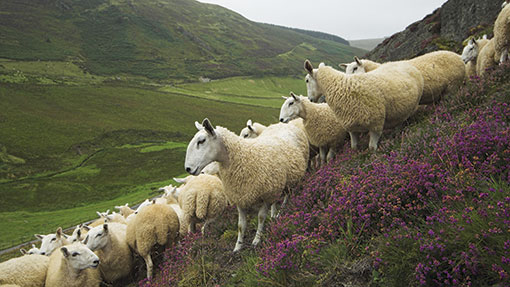Welsh farmer will lose 75% of support payment

An upland sheep farmer has voiced her concern at planned changes to Welsh government green measures that will see her direct payment cut by 75%.
Tanya Rogers, who runs 1,200 ewes on 1,200ha in the Cambrian mountains, said that more than 90% of her land fell into the moorland category, where the government has set payments at just €20/ha.
See also: Welsh urged to join £6m nature scheme
Below that line, farmers in severely disadvantaged areas will get €200/ha and those in disadvantaged areas and lowlands, €240/ha.
“My direct farm payment will fall by 76%. It’s going to have a massive impact on my business,” said Ms Rogers.
“The big problem is how unequal the payments are, even between moorland farmers. When I go across the border to market, English moorland farmers receive about three times more per hectare. Other upland farmers in Wales may get 10 times more than my payment per hectare. How am I supposed to compete?”
The National Sheep Association’s Wales region is calling on the Welsh government to direct funds to upland areas through an Area of Natural Constraint scheme (ANCs) and targeting Rural Development Programme (RDP) funds at these areas.
At 15%, Wales has one of the highest rates of transfer from Pillar 1 (direct payments) to the RDP programme (Pillar 2).
In England, the figure is 12% and in Scotland, 9.5%. In Northern Ireland there is no transfer of funds from Pillar 1. In England, moorland payment rates are €56/ha.
NSA Wales chairman Paul Wozencraft said Wales was in danger of becoming a poor relation.
“Alun Davies and his government need to level the playing field and take all possible action to make sure Welsh agriculture does not get left behind,” he said.
“The creation of ANCs in Wales would help support upland farms and their communities and enable them to keep providing public goods in the face of low moorland payments.
“With the substantial decrease in Welsh Pillar 1 funds, it is more important than ever that RDP money goes to farmers and is not siphoned off into schemes that are barely related to agriculture.”
